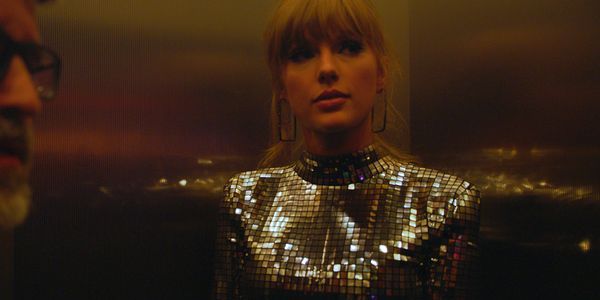In the vein of Lady Gaga’s Gaga: Five Foot Two, the newest Taylor Swift documentary by Lana Wilson promises to be a stripped down examination of a modern-day superstar. Documentaries like this aren’t exactly the most novel of cinematic inventions, but given the current culture of obsessing over celebrities, these types of films will likely be sticking around for a very long time. Miss Americana unabashedly falls into this category of filmmaking, but surprisingly does a lot more than just point a large magnifying glass onto the pop icon’s personal life.
The premise of the film is exactly what one would expect, and essentially pieces together footage from Swift’s life in the spotlight. Swinging back and forth between old video clips (from television appearances and childhood home videos) and newly recorded footage, we get a candid view of how Swift reacted to many of her life-changing events over the years. Among other things, she speaks out about the infamous Kanye West incident and her decision to take a political stance during the 2018 Tennessee midterm elections. This is all interspersed with footage from her recording studio while she worked on her latest album, Lover.
It’s hard to ignore the music
As one would expect, the music in Miss Americana fails to disappoint, especially if you’re a fan of the pop star’s music. And full disclosure, this writer has been known to carry more than a few Taylor Swift tracks on his usual playlists. But unlike traditional concert films (including her 2018 feature on Netflix, Taylor Swift: Reputation Stadium Tour), her live performances aren’t necessarily the central part of this documentary.
While there are still clips of this nature, the true musical meat of the film stems from footage shot inside her recording studio. These brief gazes into Swift’s creative process is not only interesting, but also quite rare for an artist of this caliber. We don’t necessarily get a highly technical examination of her musical compositions, but the backdoor access into her craft is still quite eye-opening.

On a much more superficial level, the recording sessions also keeps the musical pulse of the film alive from start to finish, which is only further punctuated by footage from her concert and television performances. The documentary is about much more than just the music, but not surprisingly, her music still takes a front seat. Luckily, it helps add an entertaining base to the film’s overall rhythm, without taking away from what Wilson and Swift are actually trying to say.
Delivering a message void of false inspirations
And when it comes to what the film is trying to convey to its viewers, the messaging comes directly from the words of ‘Miss Americana’ herself. The established Taylor Swift fan base will already know her to be a relatively outspoken person through her conventional press appearances and social media presence. But the goal here is to clearly go beyond segmented snippets of internal thoughts. The film utilizes both interviews and reaction-style footage as a way of allowing Swift to fully control and write her own narrative. We’re reminded of the constant media scrutiny that stars like her endure, and although the messaging we’re getting here is still controlled in some way (in this case, by the subject herself), it’s presumably the most honest messaging we’ll be able to get.
And what exactly is that message? The film actually manages to tackle highly personal issues, including her own experiences with body image insecurities, sexual abuse and loneliness. The overall moral of her story also isn’t one that’s bathed with false inspirations. The film doesn’t shy away from being critical of the entertainment industry and American popular culture in general (especially with respect to its overt sexism), but still manages to find the silver lining one gets from simply believing in themselves. It’s a thoughtfully positive message that’s delivered both loudly and clearly.
Making a superstar relatable
In the end, the most striking thing about Miss Americana is how it manages to make one of the world’s most gargantuan superstars seem relatable. Part of this stems from the fact that Swift seems to constantly acknowledge her own privileged status throughout the film, and understands that many of her personal struggles are echelons beyond even first world problems. But even superstars aren’t spared from basic human emotions, and audiences are only asked to empathize, rather than sympathize with her emotions.
And the real impact of creating this sense of relatability is perhaps best illustrated by Swift’s massive following as a social figure. Having over 125 million followers on Instagram, the echoes of this film’s positive messaging, particularly for the younger generation, will travel lengths that most conventional films could only dream of. It might not be overly apparent on the surface, but Miss Americana is socially responsible filmmaking at its finest, which is certainly a pleasant surprise.
Does content like this matter to you?
Become a Member and support film journalism. Unlock access to all of Film Inquiry`s great articles. Join a community of like-minded readers who are passionate about cinema - get access to our private members Network, give back to independent filmmakers, and more.